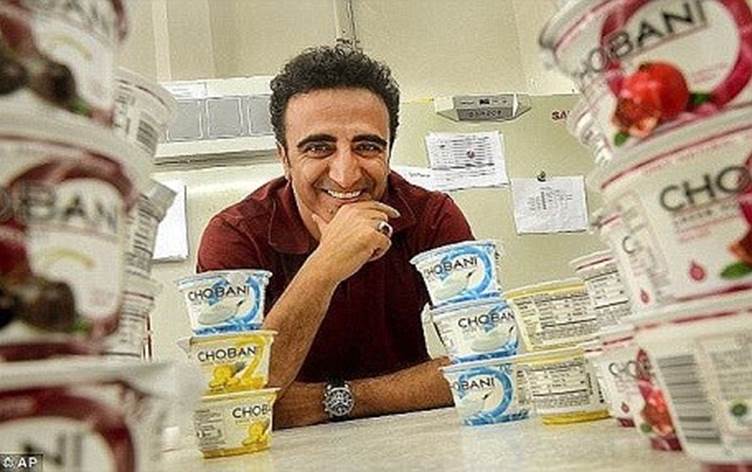Hamdi Ulukaya, Kurdish CEO and founder of Chobani Yoghurt, a company in the United States, surprised his employees this week by announcing he was giving them a 10% share of the enterprise. This announcement could make some of the workers millionaires.
In a letter on Tuesday morning, Ulukaya wrote to his company’s employees: “How we built this company matters to me, but how we grow it matters, even more, I want you not only to be a part of this growth—I want you to be the driving force of it. To share in our success, to be rewarded by it.”
The number of shares given to each employee is commensurate to the length of time they have worked at the company. On average, the shares are worth around $150,000. But some workers, with many years of service at Chobani Yoghurt, became millionaires overnight.
The son of a Kurdish shepherd, who has his roots in Northern Kurdistan in Turkey, wrote in the letter: “This isn’t a gift, it’s a mutual promise to work together with a shared purpose and responsibility. To continue to create something special and of lasting value.”
Similar employee-stake deals have happened before. One at Apple, for example, made long time workers at the company billionaires. However, such arrangements are rare in the food manufacturing industry. It is more commonly seen in Silicon Valley’s tech companies, which struggle to pay employees in their early days.
In 2014, Ulukaya also donated two million dollars to the besieged Kurdish town of Kobani in northern Syria’s Kurdish region. “Either we will be watching the massacre there and will live on with a guilty conscience, or we will save people,” he told the Daily News then.
Chobani is one of the United States’ largest food companies. Though it is known for Greek Yoghurt, the company founder is of Kurdish heritage. Chobani derives from the Turkish word Çoban, which means shepherd.
In a letter on Tuesday morning, Ulukaya wrote to his company’s employees: “How we built this company matters to me, but how we grow it matters, even more, I want you not only to be a part of this growth—I want you to be the driving force of it. To share in our success, to be rewarded by it.”
The number of shares given to each employee is commensurate to the length of time they have worked at the company. On average, the shares are worth around $150,000. But some workers, with many years of service at Chobani Yoghurt, became millionaires overnight.
The son of a Kurdish shepherd, who has his roots in Northern Kurdistan in Turkey, wrote in the letter: “This isn’t a gift, it’s a mutual promise to work together with a shared purpose and responsibility. To continue to create something special and of lasting value.”
Similar employee-stake deals have happened before. One at Apple, for example, made long time workers at the company billionaires. However, such arrangements are rare in the food manufacturing industry. It is more commonly seen in Silicon Valley’s tech companies, which struggle to pay employees in their early days.
In 2014, Ulukaya also donated two million dollars to the besieged Kurdish town of Kobani in northern Syria’s Kurdish region. “Either we will be watching the massacre there and will live on with a guilty conscience, or we will save people,” he told the Daily News then.
Chobani is one of the United States’ largest food companies. Though it is known for Greek Yoghurt, the company founder is of Kurdish heritage. Chobani derives from the Turkish word Çoban, which means shepherd.




Comments
Rudaw moderates all comments submitted on our website. We welcome comments which are relevant to the article and encourage further discussion about the issues that matter to you. We also welcome constructive criticism about Rudaw.
To be approved for publication, however, your comments must meet our community guidelines.
We will not tolerate the following: profanity, threats, personal attacks, vulgarity, abuse (such as sexism, racism, homophobia or xenophobia), or commercial or personal promotion.
Comments that do not meet our guidelines will be rejected. Comments are not edited – they are either approved or rejected.
Post a comment